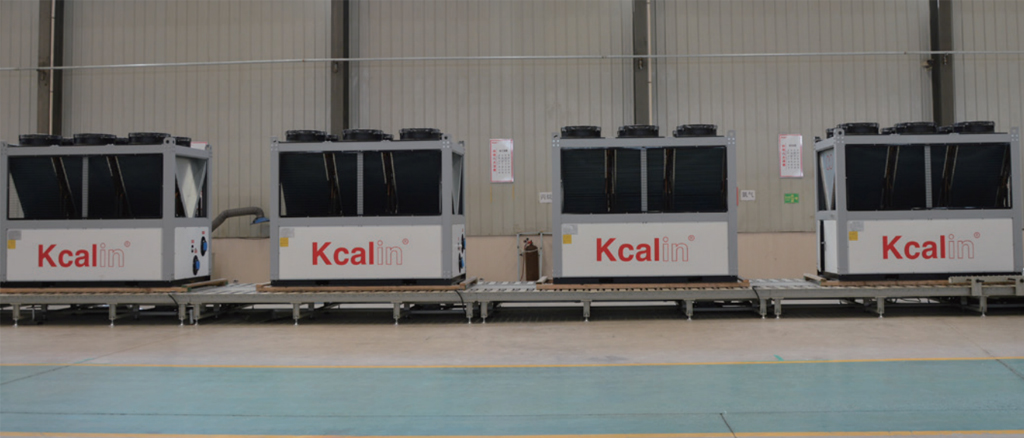Air cooled heat pump units and air source heat pump units are two different types of heat pump systems used for heating and cooling. There are some differences between them, including working principle, efficiency, installation, and applicable conditions.
Working principle: An air-cooled heat pump is a heat pump system that utilizes air as a heat source or sink. It absorbs heat energy from outdoor air and transfers it to indoor heating or cooling through a compression cycle. An air-cooled heat pump system typically includes an outdoor unit and an indoor unit, which transmit heat energy through refrigerant circulation.
Air source heat pump is also a heat pump system that utilizes air as a heat source or sink. It absorbs heat energy from outdoor air and transfers it to indoor heating or cooling through a compression cycle. Air source heat pump systems typically include an outdoor unit and one or more indoor units, which transmit heat energy through refrigerant circulation.

Efficiency: Air source heat pumps are usually more efficient than air-cooled heat pumps. This is because air source heat pumps can extract more thermal energy from outdoor air, while air-cooled heat pumps need to extract thermal energy from outdoor air under cold weather conditions, which may not be as effective as air source heat pumps. In addition, air source heat pumps typically have a higher COP (coefficient of performance), which means that each unit of electricity consumption can generate more thermal energy, resulting in greater energy savings.
Installation: The air-cooled heat pump is relatively simple and does not require the installation of a ground source heat exchanger or water source heat exchanger, nor does it require an underground pipeline system. It usually only requires one outdoor unit and one indoor unit, with relatively fast installation and relatively low cost.
And air source heat pumps require the installation of outdoor and indoor units, which usually need to be placed outdoors, while indoor units can be placed on indoor walls or floors. In addition, air source heat pumps typically require the connection of refrigerant pipelines between indoor and outdoor units, which requires certain construction and installation techniques.
Applicable conditions: Air cooled heat pumps are suitable for areas with warmer climates, as their effectiveness may not be as good as air source heat pumps in extremely cold winter conditions. Air source heat pumps are suitable for areas with milder climates, including areas with distinct seasons and warm and humid areas.
In addition, air source heat pumps can also be applied under special environmental conditions, such as in places where ground source or water source heat exchangers cannot be installed, such as urban centers or geographically restricted areas, air source heat pumps can be a more suitable choice.
Usage: Air cooled heat pumps are usually used in homes, office buildings, commercial buildings, and small industrial sites. They can provide heating and cooling functions and are widely used in various building types. Due to its simple installation and low cost, air-cooled heat pumps are widely used in some areas with warmer climates.
Air source heat pumps are more suitable for areas that require higher heating performance, such as colder climates. It can provide efficient heating in winter and cooling in summer, with good energy efficiency. Air source heat pumps are widely used in residential, commercial, and industrial buildings, especially in areas that require long-term heating.
Overall, there are some differences between air-cooled heat pumps and air source heat pumps in terms of working principle, efficiency, installation, and applicable conditions. When choosing which type of heat pump system to use, factors such as local climate conditions, building type, and energy demand should be considered, and appropriate choices should be made under the guidance of professionals.







Comment